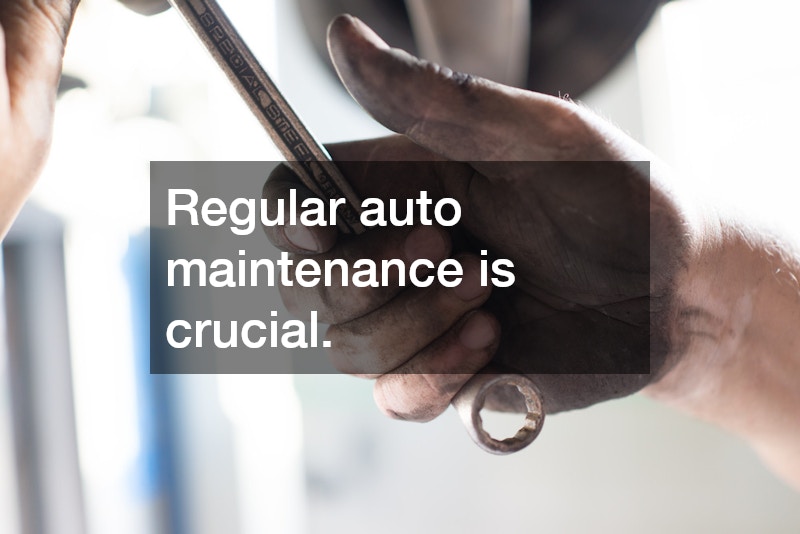Regular auto maintenance is crucial for ensuring the longevity and optimal performance of your vehicle. As car owners, we often find ourselves questioning the right frequency for servicing our automobiles. This article aims to delve into the intricacies of auto maintenance and provide guidance on scheduling these pivotal check-ups based on various factors.
Auto maintenance is not only about keeping your car in running condition but also about understanding the mechanics that allow it to function smoothly. Neglecting regular maintenance may lead to unexpected breakdowns and costly repairs.
In this comprehensive guide, we will discuss the different aspects that impact maintenance schedules and how you can optimize yours.
The Importance of Regular Auto Maintenance
Regular auto maintenance is a preventive measure that keeps your vehicle in top shape and avoids unforeseen problems. A well-maintained car ensures that all components work efficiently, reducing the risk of breakdowns. This not only keeps you safer on the road but also sustains the vehicle’s economy by improving fuel efficiency.
Preventive maintenance, such as oil changes, tire rotations, and brake checks, should be administered as per the manufacturer’s guidelines. The owner’s manual is an excellent starting point for understanding your car’s maintenance schedule. By sticking to the recommended timetable, you can maintain peak performance and prevent wear and tear.
Scheduling timely auto maintenance appointments minimizes the chances of encountering major mechanical failures. Regular checks help in identifying potential issues before they become significant problems, thereby preserving the car’s value. Ultimately, the investment in routine maintenance pays off by extending your vehicle’s lifespan and reducing overall costs.
The Factors That Influence Maintenance
Various factors influence how often you should schedule auto maintenance, including the type of vehicle, driving conditions, and individual driving habits. Vehicles used in harsh conditions, such as off-roading or extreme temperatures, may require more frequent maintenance. Similarly, if you drive frequently in congested traffic, your maintenance needs might increase due to wear on components.
Older vehicles may require more regular attention due to the aging process of mechanical parts. With newer models, especially those equipped with advanced alert systems, maintenance can be scheduled based on the car’s computer alerts. These systems monitor the car’s components and provide real-time feedback, allowing for timely interventions.
Personal driving habits play a significant role in determining maintenance needs. Aggressive driving, for example, can lead to increased wear on brakes and tires, necessitating more frequent service. On the other hand, smooth and cautious driving can reduce the frequency of required maintenance. Understanding how these factors affect your vehicle can help in tailoring a bespoke maintenance schedule.
The Common Intervals Between Maintenance
For most vehicles, common maintenance intervals are provided by the manufacturer and can typically be found in the car’s owner manual. A standard interval is the “3,000 to 5,000 miles” for oil changes, which is a staple of routine maintenance. However, with advancements in technology and the use of synthetic oils, many vehicles now extend the interval to 7,500 miles.
Tire rotation is another critical maintenance task, generally recommended every 6,000 to 8,000 miles. Regular tire rotations help in even tire wear and improve performance. Alignments and brake inspections should also be performed at these intervals to maintain smooth handling and effective stopping power.
Major services, which include spark plug replacements, fluid changes, and timing belt inspections, often occur every 30,000 to 60,000 miles. These services are essential in maintaining the operational integrity of your vehicle. Following these intervals ensures that your car operates efficiently and that major components are safeguarded from premature wear.
The Benefits of Consistent Auto Maintenance
Consistently following a maintenance schedule brings numerous benefits, the most significant of which is improved vehicle reliability. Regularly maintained vehicles are less likely to experience unexpected failures. This reliability translates to peace of mind while driving, knowing that your vehicle is in optimal condition.
A well-maintained vehicle also enjoys better fuel efficiency, as the engine runs more smoothly and without unnecessary strain. Properly inflated tires, clean air filters, and timely oil changes all contribute to improved mileage. Over time, these small efficiencies lead to considerable savings in fuel costs.
Regular auto maintenance is an investment in your vehicle’s future. Determine an appropriate schedule based on specific needs and enjoy the benefits of a vehicle that runs smoothly and efficiently. Remember, when it comes to keeping your car in prime condition, prevention is always better than cure.
.


